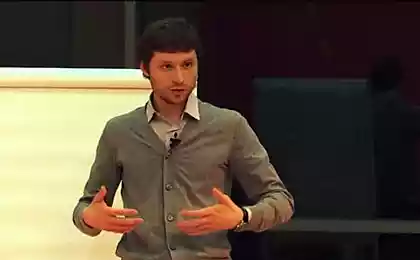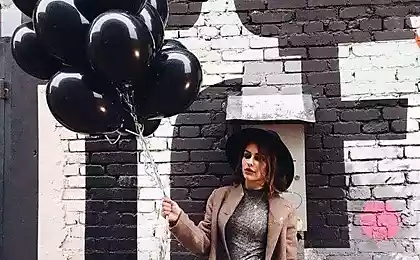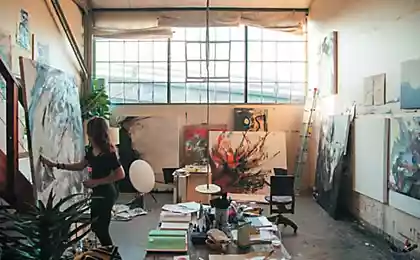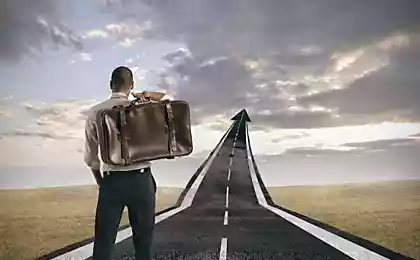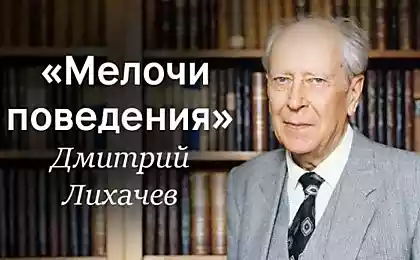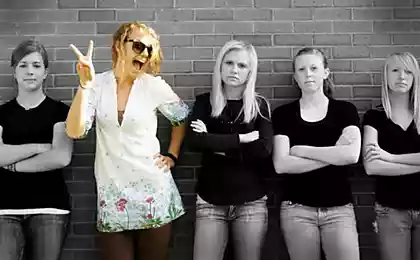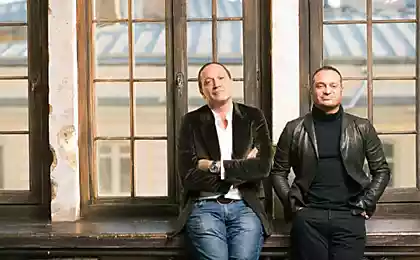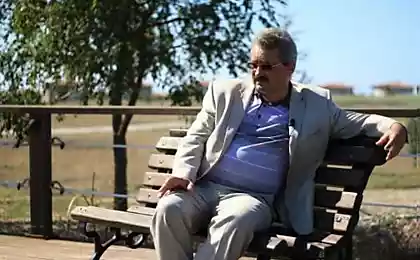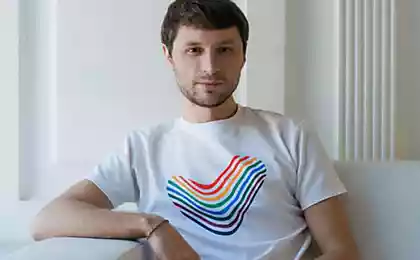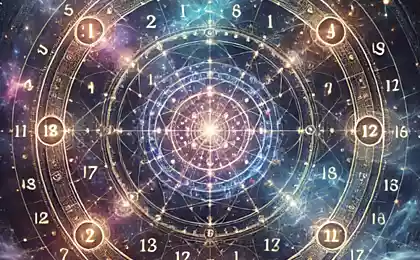635
Dmitry Shamenkov: How to find your purpose
To notice your life and find a way of self-realization. To expand your comfort zone, accepting the reality for what it is. To be happy in the present moment. Question – how to do it? – worries many. Answers the doctor and the Creator of the “System health management” Dmitry Shamenkov.
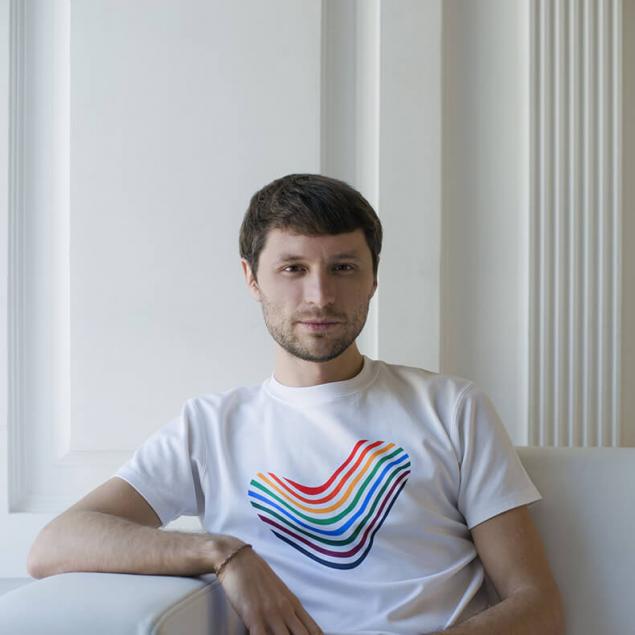
How did the System health management (CPS) ?
My path to the creation of the CPS in its current form began with the crisis in my life, which covered all sides of it — health, family, and work. As you descend into crisis, at some point I felt that I had passed the point of no return, I realized that it is useless to resist what is happening.
This understanding eased my separation from the illusion, I realized that if I don't accept reality for what it is, it will create even more resistance, which in turn, will force me to repeat my previous experience, which was the problem. In other words, we can say that it all began with a complete surrender and recognition of the ineffectiveness of my ideas about reality.
The cause of the crisis?
Deferred life. I didn't notice this until the future, did not attach much value to the family, friends and all the good that surrounded me.
I think this is a distinctive feature of Russian people – to be constantly in search of happiness. Typically, this search is accompanied by stress and fuss. Because of this, it becomes very difficult to realize that happiness is a process, not a result. What is important to know about the purpose and happiness as a single mechanism, in order not to lose neither one nor the other?
It is important to know that the target has nowhere to go because the goal is the neurobiological mechanism that determines what we perceive, think and do. Without purpose, our body is destroyed. It seems to us that we define the goal, but in fact, the purpose defines us. The goal is every living system, regardless of what he thinks about it itself is a living system. Challenges begin when instead of adapting to the continuously changing relations, the goal is the proof of the correctness and repetition of the past.
Example?
For example, we go to see the cherry blossoms. And suddenly, when he reached the destination, we learn that Sakura is gone and in its place planted oak. In this situation, we can quickly adapt and change directions to where grow cherry trees, but they can accept the situation and get pleasure from the oak — this is a normal reaction.
But there may be another scenario — if we are attached to past experience and believe that Sakura needs to grow in the place where we came from, we can experience anger, resentment, and ultimately, depression, poisoning our lives. Example of a tree is quite simple, and, as a rule, such situations are a serious problem for us are not. But what if Sakura is a different person?
We are constantly changing — it took a moment, and we have others, "Sakura" is more on the ground there. If our goal is a certain behavior of other people, we run the risk of becoming chronically dissatisfied man or a tyrant.
In the relationship, our agreement should be based on common goals and not only on previous experience. We must always clearly understand how the forms is our goal. If the goal is formed only from our representation of reality, based on previous experience, there is a huge probability of losing the ability to live happy, so that we can get sick, despite our dedication.
Therefore, in order to be successful and healthy, it is vitally important to clearly understand what goals unite us with other peopleand continuously support the exchange of information to have a current understanding of these goals and the current progress towards them.
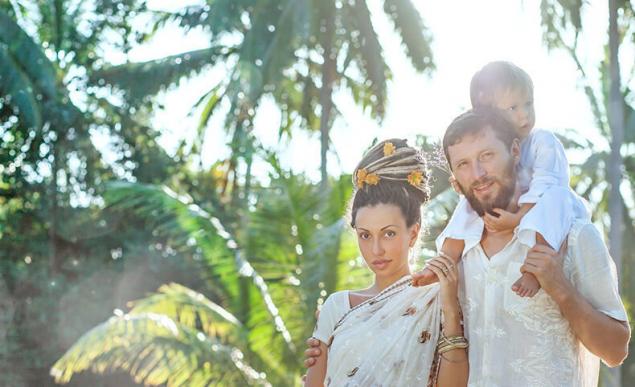
Tell us about the practice of celosana.
Its essence is not to "invent" the purpose, and to realize its presence in life. We are born with a purpose — all people, in the end, is the main goal is enjoying life here and now — happiness. If I want to learn to understand their purpose, I first need to learn non-judgmental to listen to their feelings, to learn to create a pause in life, to learn to feel what is happening right now, to feel peace or anxiety, inhale or exhale.
By synchronizing with your feelings we learn to perceive reality for what it is and regaining the natural ability to feel other people and the living world as a whole. And in an open dialogue based on a shared sense of reality, we can learn what we really want, and to realize themselves. To learn to feel your goal, it is important for us to be in constant sync with reality.
But in society, too, are distortions. Let's say we agree to interact with society, taking from him the information that Sakura will be there. We believe, we go there, but in the end rested in oak. At the same time, if a person is alone, he can find what he wanted. How to recognize distortion, so they do not deflect us from the goal?
In different moments of life we can move towards the goal- and alone, too. But in any case, a source of purpose is dialogue — communication with yourself and others. So we don't lose your aim, this communication must be accurate, without distortion. And accuracy of communications can be observed only under the condition that we be honest with ourselves and the world around you.
As the antithesis of honesty affects the human body from the point of view of biology. What lies beneath?
For the body to lie is stressful. When we lie, the brain is constantly in a state of mobilization, because it is necessary to develop and maintain a story that has no real Foundation. As a result of chronic stress, the stress lies in the body suffers from self-regulation, disrupted many systems and individual organs.
In the study by Professor Anita Kelly, University of Notre Damme proved that the reduction in daily lie, even a third leads to a significant (more than twofold) decrease in the frequency of physical or psychological health problems. To compensate for the changes in the body, we are forced to believe in his own lies, which leads to subsequent mistakes of goal setting and loss of meaning of life, which in turn can lead to the development of serious physical health problems.
Sometimes what we think is true is a lie. That may be the understanding that we are moving in the right direction towards the goal?
An important criterion of the correctness of the movement is the inner sense of well-being, its permanence. We should not allow in your life discomfort and justify their ephemeral results in the future — this can lead to a syndrome of delayed life.
Stepping on the throat of his song here and now, engaged in unloved business, we're fooling ourselves. When we say this, it is important not to confuse pathological discomfort and discomfort resulting from evolutionary development. For self-realization it is necessary to go beyond their own ideas about reality and ourselves and it is always a painful process.
However, it is always accompanied by positive emotions that ahead useful to reflect the result of our development in the future. Pathological discomfort always accompanied by the disruption of our body, dejection, and feeling of the senselessness of the actions performed. Same circumstances, same our actions can look very different and lead to very different consequences depending on the goals that guide us.
Let's say I want to solve the issue. His decision in the positive side for me is closely connected with a person who is unpleasant to me. How to get through the situation without hypocrisy, but at the same time to achieve the goal?
In order to agree, you must accept the person or situation for what it is.
At the moment begin to experience internal resistance, because my imagination complicated the situation and make things very unpleasant person. Mentally go to the beginning of our conversation and realize that I need to take it, otherwise I was waiting for the wheel of samsara. Get me out of there, explain how to take Neprikasaemie?
This situation is a good example of misperception. We try to accept an external reality that instead to accept and live what is within us. That is, we try to accept the other person, instead of to accept her feelings towards him. But only through the acceptance of ourselves is the adoption of the other. To accept and Express ourselves as we really are very scary, but it is True! This is the basis of the movement have come to know the other person, as the knowledge of another person without the knowledge of yourself is impossible!
Let the example Neprikasaemie will form a strategy for its adoption: and so, some .... is in relation to us is incorrect...
... And in this moment we have unpleasant feelings, first and foremost, we seek these feelings out somewhere to run and hide — this is what caused our reactions to people and situations that irritate us — we try to avoid what makes us uncomfortable for us the feelings, or destroy. Therefore, to solve the problem you need to:
It is important to realize that the affection of their own well-being to external objects — people, organizations, objects, situations — is always dysfunctional, because external objects are never fully meets our expectations about them, because we have done their ideas dependent on their condition.
Thus, while recognizing the right of another person to a free from us, we acknowledge their right to be themselves and to do what you love. Otherwise, we find ourselves in a cycle of oughts and deprive themselves of freedom.
What is the necessity?
Cognitive therapy gives a definition — "the feeling of duty is an excessive focus on thinking, "I should act or feel a certain way", without taking alternative options and assess the real consequences of such behavior. Often occurs because in the past imposed standards of conduct and schemes of thought."
I look at the obligation from the point of view of result of action — if, in order to act (or how we feel, "to live"), the person need any special conditions, and it is constantly waiting for them (worst of all), or working on their creation, trying to bend around their beliefs about reality, struggling with what is the result of its activity becomes idle or struggle with life and a deepening rejection of reality, the frustration in her, accompanied by a sense of rightness.
Often after many attempts of action of the energy of such a person is exhausted, and its activity becomes almost impossible ("discouraged"). It looks like an extreme form of oughts. Example: in the middle of summer suddenly come frosts, snow and hail destroys crops — of course, it is unpleasant, but in such an event, different people can react in different ways, and their reactions strongly depend on the effects.
Someone is so strongly tied to the specific crop and weather that can't take a loss — he's trying to act the old way, when it compares the reality with their ideas of what it could be, and the reality in this comparison loses, which causes negative feelings, deprives it of the energy of action and ability to consider alternative solutions to the problem.
The other person may be less strongly tied to representations of the past — after a short period experiences negative emotions, he concentrates on the target, and, while maintaining the frost, looking for a way to replenish the power the other way. You know that the second person more likely to survive.
It can touch everything: nature, humans are God. The belief that life should be different, that she had no right to exist in the form in which it is happening now, leads to chronic dissatisfaction and inhibit our creative self-realization.
Once we have a sense that we need to be different, or someone else what we have is a sign that it's time to work out internal imbalances and to break free from what prevents us to feel the here and now.
This applies, in particular, themselves oughts — the process I just described occurs in our lives naturally. The representation of reality, in which I should not be oughts, is erroneous.
At this stage I can occur inside the internal conflict — I think that the world should be certain, and at the same time I am conscious of my duty, and I can understand that he should not be. It is here important to realize that my world view is another necessity. But in fact, not supposed to be.
I practice your technique of silence for two months. In this practice, my brain second by second pass through terabytes of information. In meditation, everything is different: deeply concentrate on my breathing and my thoughts become so superficial that I don't hover on them, you just stop noticing after a half an hour drop in space where there is nothing — silence, a vacuum.
But before I get into that space, I still belong to some purpose, for example focus on breathing. And in the practice of silence such as silence do not, it is an endless circulation of ideas. I'm sitting here an hour, but the silence in my head doesn't even happen. What to do with the endless stream of thoughts? And what purpose would I belong at this hour practices?
I would not make a distinction between the practice of silence and meditation in this context. Anyway, during meditation, we are silent. The flow of thoughts is an indication that the mind works. If there are negative feelings, this suggests that the mind is clogged. But we should not run away from thoughts and feelings. I like to do is delve into them.
The time spent in practice should be devoted to observations of what actually happens in your life here and now. Meditation, about which you write, may become a major obstacle in practice. A high degree of concentration is just a tool.
That's what Bhikku Buddhadasa talked about the practice: "the Body is in its normal state, but the mind is quiet and able to reflect and carry out self-examination. It is absolutely clear, imperturbable, calm and quiet. In other words, he was fit for work, ready to know. We strive to the degree of concentration, but not to a very deep concentration when a person sits motionless, like a statue, deprived to some extent of consciousness. One who is in such a deep concentration can not be anything to explore. Deeply concentrated mind can't introspect and get insight. <...>
For the development of insight in a natural way we do not need to achieve high levels of concentration and sitting motionless. Rather, we aim at a calm, steady mind, so ready, that when used in the practice of insight he reaches the right understanding around the world."
The difference between hard and not very clogged channel?
It is determined by the set of ideas associated with the duty.
The aim of the practice?
The aim of the practice of silence — to recover, regain health. Being in silence, we enable the systems of a higher order to refresh the thinking. You just have to follow the flow of thoughts, not to interfere in them, otherwise will delay the cycle oughts. But before start practicing, it is important to realize and accept one postulate — health is only in the present!
How to understand what it is, if it is not?
The body is made up of hundreds of trillions of cells that support vzaimodeistvie in the present moment, in real time. Its integrity that we are experiencing as the condition is always the result of dynamic equilibrium. Therefore, in the practice of silence we have only one goal — to be that is.
Only in the case of a deep acceptance of the present health from the future turns into the present. Matrix of objectives, which, recall, leads us eventually to ensure that we were happy and enjoyed the life here and now reflected in the result of the moment here and now. During practice we do not expect anything from life and to anything not actively seeking, we just let happen what happens.
At the time of practice, our local information matrix is synchronized with the global information space — we begin to see all relationships in which are included, and begin to realize all that prevents us from contact with reality, easily let go of old thought patterns. Through the practice of silence as realistic as possible, we begin to perceive the world: we neither expect anything and do not believe that the world we have something. In this state our actions match the reality and our needs.
The books that inspired and helped on the path of transformation and in life in General?
What is intuition?
The rational brain simply cannot process all incoming information in real time, so processing is carried out automatically and its result is reflected in the emotional imprint of reality, which guides us in making decisions.
Academician P. K. Anokhin (Soviet physiologist, a pupil of Pavlov, the Creator of the theory of functional systems) called this print "the emotional compass" (similar to radar), which we are constantly researching all of reality is intuition. It can be developed if the decision making is based on this bearing, and may not be developed if it prefers to rely on rational calculation.
Which, in turn, consists of previous experience, which may be distorted...
Yeah, that's why the best rational choice is to learn to use our emotional compass for decision-making, and to break free from the oughts through their awareness. Experience error, pondering, and practicing, which we have discussed above, help to develop your intuition and learn to listen to your heart, the hearts of others and, ultimately, help to penetrate deeper into life itself, to become her.
IF YOU WISH TO KNOW YOURSELF, TO GET ANSWERS TO IMPORTANT QUESTIONS, TO UNDERSTAND THE SITUATION, TO CONSULT, TO SOLVE THE PROBLEM. AN IMPORTANT DECISION TO MAKE -
You can visit
Live 2-day event Dr. Dmitry Shamenkova: "Relationships — the key to health"
To learn more about the event
Source: shamenkov.ru

How did the System health management (CPS) ?
My path to the creation of the CPS in its current form began with the crisis in my life, which covered all sides of it — health, family, and work. As you descend into crisis, at some point I felt that I had passed the point of no return, I realized that it is useless to resist what is happening.
This understanding eased my separation from the illusion, I realized that if I don't accept reality for what it is, it will create even more resistance, which in turn, will force me to repeat my previous experience, which was the problem. In other words, we can say that it all began with a complete surrender and recognition of the ineffectiveness of my ideas about reality.
The cause of the crisis?
Deferred life. I didn't notice this until the future, did not attach much value to the family, friends and all the good that surrounded me.
I think this is a distinctive feature of Russian people – to be constantly in search of happiness. Typically, this search is accompanied by stress and fuss. Because of this, it becomes very difficult to realize that happiness is a process, not a result. What is important to know about the purpose and happiness as a single mechanism, in order not to lose neither one nor the other?
It is important to know that the target has nowhere to go because the goal is the neurobiological mechanism that determines what we perceive, think and do. Without purpose, our body is destroyed. It seems to us that we define the goal, but in fact, the purpose defines us. The goal is every living system, regardless of what he thinks about it itself is a living system. Challenges begin when instead of adapting to the continuously changing relations, the goal is the proof of the correctness and repetition of the past.
Example?
For example, we go to see the cherry blossoms. And suddenly, when he reached the destination, we learn that Sakura is gone and in its place planted oak. In this situation, we can quickly adapt and change directions to where grow cherry trees, but they can accept the situation and get pleasure from the oak — this is a normal reaction.
But there may be another scenario — if we are attached to past experience and believe that Sakura needs to grow in the place where we came from, we can experience anger, resentment, and ultimately, depression, poisoning our lives. Example of a tree is quite simple, and, as a rule, such situations are a serious problem for us are not. But what if Sakura is a different person?
We are constantly changing — it took a moment, and we have others, "Sakura" is more on the ground there. If our goal is a certain behavior of other people, we run the risk of becoming chronically dissatisfied man or a tyrant.
In the relationship, our agreement should be based on common goals and not only on previous experience. We must always clearly understand how the forms is our goal. If the goal is formed only from our representation of reality, based on previous experience, there is a huge probability of losing the ability to live happy, so that we can get sick, despite our dedication.
Therefore, in order to be successful and healthy, it is vitally important to clearly understand what goals unite us with other peopleand continuously support the exchange of information to have a current understanding of these goals and the current progress towards them.

Tell us about the practice of celosana.
Its essence is not to "invent" the purpose, and to realize its presence in life. We are born with a purpose — all people, in the end, is the main goal is enjoying life here and now — happiness. If I want to learn to understand their purpose, I first need to learn non-judgmental to listen to their feelings, to learn to create a pause in life, to learn to feel what is happening right now, to feel peace or anxiety, inhale or exhale.
By synchronizing with your feelings we learn to perceive reality for what it is and regaining the natural ability to feel other people and the living world as a whole. And in an open dialogue based on a shared sense of reality, we can learn what we really want, and to realize themselves. To learn to feel your goal, it is important for us to be in constant sync with reality.
But in society, too, are distortions. Let's say we agree to interact with society, taking from him the information that Sakura will be there. We believe, we go there, but in the end rested in oak. At the same time, if a person is alone, he can find what he wanted. How to recognize distortion, so they do not deflect us from the goal?
In different moments of life we can move towards the goal- and alone, too. But in any case, a source of purpose is dialogue — communication with yourself and others. So we don't lose your aim, this communication must be accurate, without distortion. And accuracy of communications can be observed only under the condition that we be honest with ourselves and the world around you.
As the antithesis of honesty affects the human body from the point of view of biology. What lies beneath?
For the body to lie is stressful. When we lie, the brain is constantly in a state of mobilization, because it is necessary to develop and maintain a story that has no real Foundation. As a result of chronic stress, the stress lies in the body suffers from self-regulation, disrupted many systems and individual organs.
In the study by Professor Anita Kelly, University of Notre Damme proved that the reduction in daily lie, even a third leads to a significant (more than twofold) decrease in the frequency of physical or psychological health problems. To compensate for the changes in the body, we are forced to believe in his own lies, which leads to subsequent mistakes of goal setting and loss of meaning of life, which in turn can lead to the development of serious physical health problems.
Sometimes what we think is true is a lie. That may be the understanding that we are moving in the right direction towards the goal?
An important criterion of the correctness of the movement is the inner sense of well-being, its permanence. We should not allow in your life discomfort and justify their ephemeral results in the future — this can lead to a syndrome of delayed life.
Stepping on the throat of his song here and now, engaged in unloved business, we're fooling ourselves. When we say this, it is important not to confuse pathological discomfort and discomfort resulting from evolutionary development. For self-realization it is necessary to go beyond their own ideas about reality and ourselves and it is always a painful process.
However, it is always accompanied by positive emotions that ahead useful to reflect the result of our development in the future. Pathological discomfort always accompanied by the disruption of our body, dejection, and feeling of the senselessness of the actions performed. Same circumstances, same our actions can look very different and lead to very different consequences depending on the goals that guide us.
Let's say I want to solve the issue. His decision in the positive side for me is closely connected with a person who is unpleasant to me. How to get through the situation without hypocrisy, but at the same time to achieve the goal?
In order to agree, you must accept the person or situation for what it is.
At the moment begin to experience internal resistance, because my imagination complicated the situation and make things very unpleasant person. Mentally go to the beginning of our conversation and realize that I need to take it, otherwise I was waiting for the wheel of samsara. Get me out of there, explain how to take Neprikasaemie?
This situation is a good example of misperception. We try to accept an external reality that instead to accept and live what is within us. That is, we try to accept the other person, instead of to accept her feelings towards him. But only through the acceptance of ourselves is the adoption of the other. To accept and Express ourselves as we really are very scary, but it is True! This is the basis of the movement have come to know the other person, as the knowledge of another person without the knowledge of yourself is impossible!
Let the example Neprikasaemie will form a strategy for its adoption: and so, some .... is in relation to us is incorrect...
... And in this moment we have unpleasant feelings, first and foremost, we seek these feelings out somewhere to run and hide — this is what caused our reactions to people and situations that irritate us — we try to avoid what makes us uncomfortable for us the feelings, or destroy. Therefore, to solve the problem you need to:
- first and foremost, on the contrary, to follow your own feelings, acknowledging their presence, to identify, to let them be and develop — so we learn to be in touch with the reality of his own life. True recognition of your own feelings brings a deep understanding that every person has at least two sides. They constantly create contradictions within us, but both have a right to life. This realization transforms the monochromatic picture of our world into a spectrum, gives us a better understanding of yourself and the other person, our diversity, and creates the opportunity for dialogue. It is important that there is no question that we need to adapt to that person. Why should we do that? But this does not mean that we should fall into self-deception and to deny its right to exist. It is, and its adoption is through the acceptance of their own feelings. When we recognize the right to have both positive and negative feelings, it becomes a million times easier to take the next step toward adoption:
- to recognize the freedom of another person, his right to independence from us. This gives us the opportunity to realize their own freedom, their own independence from the other position. If our health, well-being is tied to the other person's behavior, we become hostages of his condition. The man automatically begins to affect our condition, even if you do not want this, and we are thus depriving ourselves of freedom. Since our state is tied to the position of another person, simultaneously with this, we become rapists, because trying to manipulate them to fit into the system of coordinates to facilitate their position — we want to make the other behave the way we want, and we feel a sufficient basis for this.
It is important to realize that the affection of their own well-being to external objects — people, organizations, objects, situations — is always dysfunctional, because external objects are never fully meets our expectations about them, because we have done their ideas dependent on their condition.
Thus, while recognizing the right of another person to a free from us, we acknowledge their right to be themselves and to do what you love. Otherwise, we find ourselves in a cycle of oughts and deprive themselves of freedom.
What is the necessity?
Cognitive therapy gives a definition — "the feeling of duty is an excessive focus on thinking, "I should act or feel a certain way", without taking alternative options and assess the real consequences of such behavior. Often occurs because in the past imposed standards of conduct and schemes of thought."
I look at the obligation from the point of view of result of action — if, in order to act (or how we feel, "to live"), the person need any special conditions, and it is constantly waiting for them (worst of all), or working on their creation, trying to bend around their beliefs about reality, struggling with what is the result of its activity becomes idle or struggle with life and a deepening rejection of reality, the frustration in her, accompanied by a sense of rightness.
Often after many attempts of action of the energy of such a person is exhausted, and its activity becomes almost impossible ("discouraged"). It looks like an extreme form of oughts. Example: in the middle of summer suddenly come frosts, snow and hail destroys crops — of course, it is unpleasant, but in such an event, different people can react in different ways, and their reactions strongly depend on the effects.
Someone is so strongly tied to the specific crop and weather that can't take a loss — he's trying to act the old way, when it compares the reality with their ideas of what it could be, and the reality in this comparison loses, which causes negative feelings, deprives it of the energy of action and ability to consider alternative solutions to the problem.
The other person may be less strongly tied to representations of the past — after a short period experiences negative emotions, he concentrates on the target, and, while maintaining the frost, looking for a way to replenish the power the other way. You know that the second person more likely to survive.
It can touch everything: nature, humans are God. The belief that life should be different, that she had no right to exist in the form in which it is happening now, leads to chronic dissatisfaction and inhibit our creative self-realization.
Once we have a sense that we need to be different, or someone else what we have is a sign that it's time to work out internal imbalances and to break free from what prevents us to feel the here and now.
This applies, in particular, themselves oughts — the process I just described occurs in our lives naturally. The representation of reality, in which I should not be oughts, is erroneous.
At this stage I can occur inside the internal conflict — I think that the world should be certain, and at the same time I am conscious of my duty, and I can understand that he should not be. It is here important to realize that my world view is another necessity. But in fact, not supposed to be.
I practice your technique of silence for two months. In this practice, my brain second by second pass through terabytes of information. In meditation, everything is different: deeply concentrate on my breathing and my thoughts become so superficial that I don't hover on them, you just stop noticing after a half an hour drop in space where there is nothing — silence, a vacuum.
But before I get into that space, I still belong to some purpose, for example focus on breathing. And in the practice of silence such as silence do not, it is an endless circulation of ideas. I'm sitting here an hour, but the silence in my head doesn't even happen. What to do with the endless stream of thoughts? And what purpose would I belong at this hour practices?
I would not make a distinction between the practice of silence and meditation in this context. Anyway, during meditation, we are silent. The flow of thoughts is an indication that the mind works. If there are negative feelings, this suggests that the mind is clogged. But we should not run away from thoughts and feelings. I like to do is delve into them.
The time spent in practice should be devoted to observations of what actually happens in your life here and now. Meditation, about which you write, may become a major obstacle in practice. A high degree of concentration is just a tool.
That's what Bhikku Buddhadasa talked about the practice: "the Body is in its normal state, but the mind is quiet and able to reflect and carry out self-examination. It is absolutely clear, imperturbable, calm and quiet. In other words, he was fit for work, ready to know. We strive to the degree of concentration, but not to a very deep concentration when a person sits motionless, like a statue, deprived to some extent of consciousness. One who is in such a deep concentration can not be anything to explore. Deeply concentrated mind can't introspect and get insight. <...>
For the development of insight in a natural way we do not need to achieve high levels of concentration and sitting motionless. Rather, we aim at a calm, steady mind, so ready, that when used in the practice of insight he reaches the right understanding around the world."
The difference between hard and not very clogged channel?
It is determined by the set of ideas associated with the duty.
The aim of the practice?
The aim of the practice of silence — to recover, regain health. Being in silence, we enable the systems of a higher order to refresh the thinking. You just have to follow the flow of thoughts, not to interfere in them, otherwise will delay the cycle oughts. But before start practicing, it is important to realize and accept one postulate — health is only in the present!
How to understand what it is, if it is not?
The body is made up of hundreds of trillions of cells that support vzaimodeistvie in the present moment, in real time. Its integrity that we are experiencing as the condition is always the result of dynamic equilibrium. Therefore, in the practice of silence we have only one goal — to be that is.
Only in the case of a deep acceptance of the present health from the future turns into the present. Matrix of objectives, which, recall, leads us eventually to ensure that we were happy and enjoyed the life here and now reflected in the result of the moment here and now. During practice we do not expect anything from life and to anything not actively seeking, we just let happen what happens.
At the time of practice, our local information matrix is synchronized with the global information space — we begin to see all relationships in which are included, and begin to realize all that prevents us from contact with reality, easily let go of old thought patterns. Through the practice of silence as realistic as possible, we begin to perceive the world: we neither expect anything and do not believe that the world we have something. In this state our actions match the reality and our needs.
The books that inspired and helped on the path of transformation and in life in General?
- Pyotr Kuzmich Anokhin "Philosophical aspects of the theory of functional systems"
- Konstantin Viktorovich Sudakov "Functional system"
- Sir Lloyd "Programming the universe. Quantum computer and the future of science"
- Sam Harris "A Lie. Why telling the truth is always better"
- Chris Frith, "Brain and soul"
What is intuition?
The rational brain simply cannot process all incoming information in real time, so processing is carried out automatically and its result is reflected in the emotional imprint of reality, which guides us in making decisions.
Academician P. K. Anokhin (Soviet physiologist, a pupil of Pavlov, the Creator of the theory of functional systems) called this print "the emotional compass" (similar to radar), which we are constantly researching all of reality is intuition. It can be developed if the decision making is based on this bearing, and may not be developed if it prefers to rely on rational calculation.
Which, in turn, consists of previous experience, which may be distorted...
Yeah, that's why the best rational choice is to learn to use our emotional compass for decision-making, and to break free from the oughts through their awareness. Experience error, pondering, and practicing, which we have discussed above, help to develop your intuition and learn to listen to your heart, the hearts of others and, ultimately, help to penetrate deeper into life itself, to become her.
IF YOU WISH TO KNOW YOURSELF, TO GET ANSWERS TO IMPORTANT QUESTIONS, TO UNDERSTAND THE SITUATION, TO CONSULT, TO SOLVE THE PROBLEM. AN IMPORTANT DECISION TO MAKE -
You can visit
Live 2-day event Dr. Dmitry Shamenkova: "Relationships — the key to health"
To learn more about the event
Source: shamenkov.ru


